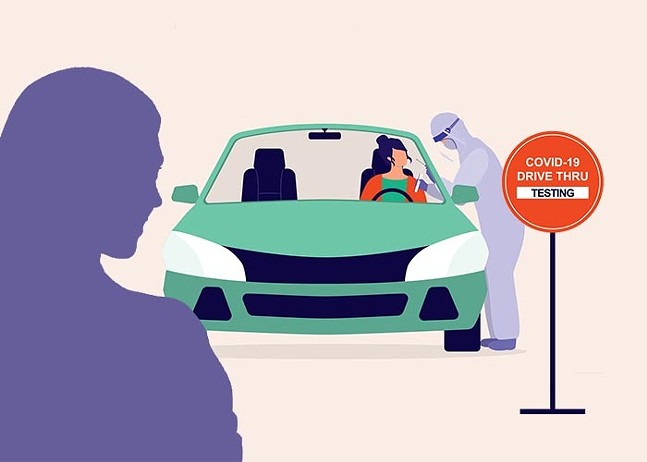I grew up in the South Hills of Pittsburgh, and after living abroad during the COVID-19 pandemic, I returned home to visit my family for the first time in two years. I was home for two weeks before having close contact with a COVID-19 patient.
Immediately, I scheduled a testing appointment at the grocery store pharmacy in the South Hills. With two grandmothers in their 90s and a brother who is immunocompromised, I didn’t want unnecessary risks. When I walked through the drive-thru pharmacy, I was denied a COVID test by the pharmacist who told me it was against store policy to give a test to an individual without a car. When I asked if that meant someone who couldn’t afford a car couldn’t get tested, she answered in the affirmative. At this pharmacy, if you can’t afford a car, you can’t afford a COVID test.
Studies report on how socio economic factors have impacts on survival rates among cancer patients and heart disease patients. Despite it being ethically, morally, and medically wrong, decreased access to care and increased incidence of disease are expected in poorer communities. Historically, we’ve ignored those barriers; they impact only the health of the individual. But by denying a COVID test to someone without access to a car, this South Hills pharmacy is wilfully increasing the risk of community spread.
The pharmacy’s website greets you with bold letters, a message about helping neighbors to thrive. Which neighbors? I grew up in this town, don’t I deserve to thrive? The entire “about us” page advertises ways in which the store supports their community, increases access to healthy foods and contributes to health equity. Perhaps the company has their own definition of equity.
While I stood waiting in the drive-thru lane, the man behind me yelled that I could go to the testing center in Bridgeville. When I asked how he expected me to get there without a car, he shrugged. The trip would take 90-minutes in each direction. I would need to take two buses and encounter countless susceptible individuals.
On my walk home, I passed an Upper St. Clair urgent care center. To receive a test there, I would need to show symptoms and pay $115. Another, smaller pharmacy on the corner stopped their COVID testing. A nearby express medical center charges $125. Every pharmacy was out of at-home testing kits, which are also priced at over $100. After some hours spent trying to get a test, I walked home and began an isolation period. If I didn’t have the luxury of working from home, I’d return to work — untested. My dedication to the community wouldn’t surpass my need to pay my own bills or care for my own family. Historically, it’s been too easy to turn a blind eye to the factors that increase illness at a classist level. COVID should have unravelled that. We should understand that denying care to one person increases risk for the next. We should understand that when we build barriers to testing, we make it impossible to flatten the curve.
Just how much does testing matter? The NIH calls testing the key to “getting back to normal.” In April 2020, they launched the Rapid Acceleration of Diagnostics (RADx) Initiative. The NIH also reports that testing is more important in communities hit harder by the virus. These communities are often poorer, have more essential workers, and a higher percentage of multi-generational homes. They also have a much lower rate of car ownership than wealthier communities.
Granted, Bethel Park is a wealthier community where most people own cars. McKeesport, however, is not. In McKeesport, 27.7% of people live below the poverty level. The nearest supermarket pharmacy testing center is 2.3 miles away. You could get there without a car, you just wouldn’t receive a COVID test when you arrived. In Bethel Park, 2.8% of people live below the poverty line, enough to increase community spread
In addition to facing higher risks of contracting and dying from COVID, poorer populations face greater barriers to protecting their community. COVID-19 isn’t cancer, and it isn’t heart disease; it’s a highly communicable disease. Pharmacy and testing centers promise to take care of the communities they serve; shouldn’t that mean every member of the community?
Infection rates are going up. My mother works in schools without vaccine mandates. Knowing if a teacher has COVID is crucial to her health. My grandmother stopped leaving the house; my brother only leaves when necessary. Your health is their health, and my health is yours. Today, I was denied a COVID test based on access to a car. Tomorrow, how will my health impact your risk for infection?
Jennifer Lutz is a journalist and essayist who grew up in the South Hills. She currently works as Lead, Communications and Storytelling at SeekHer Foundation.


